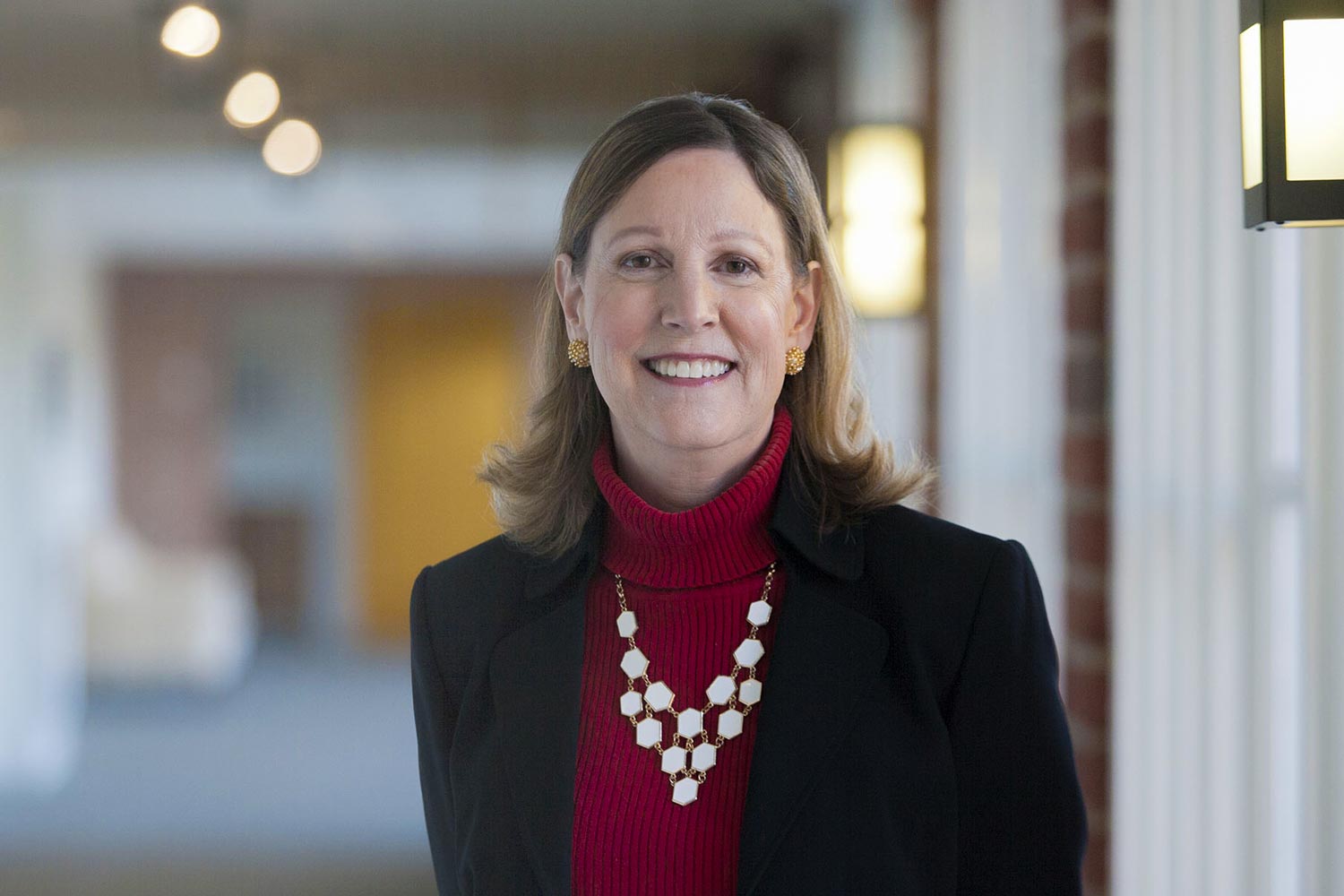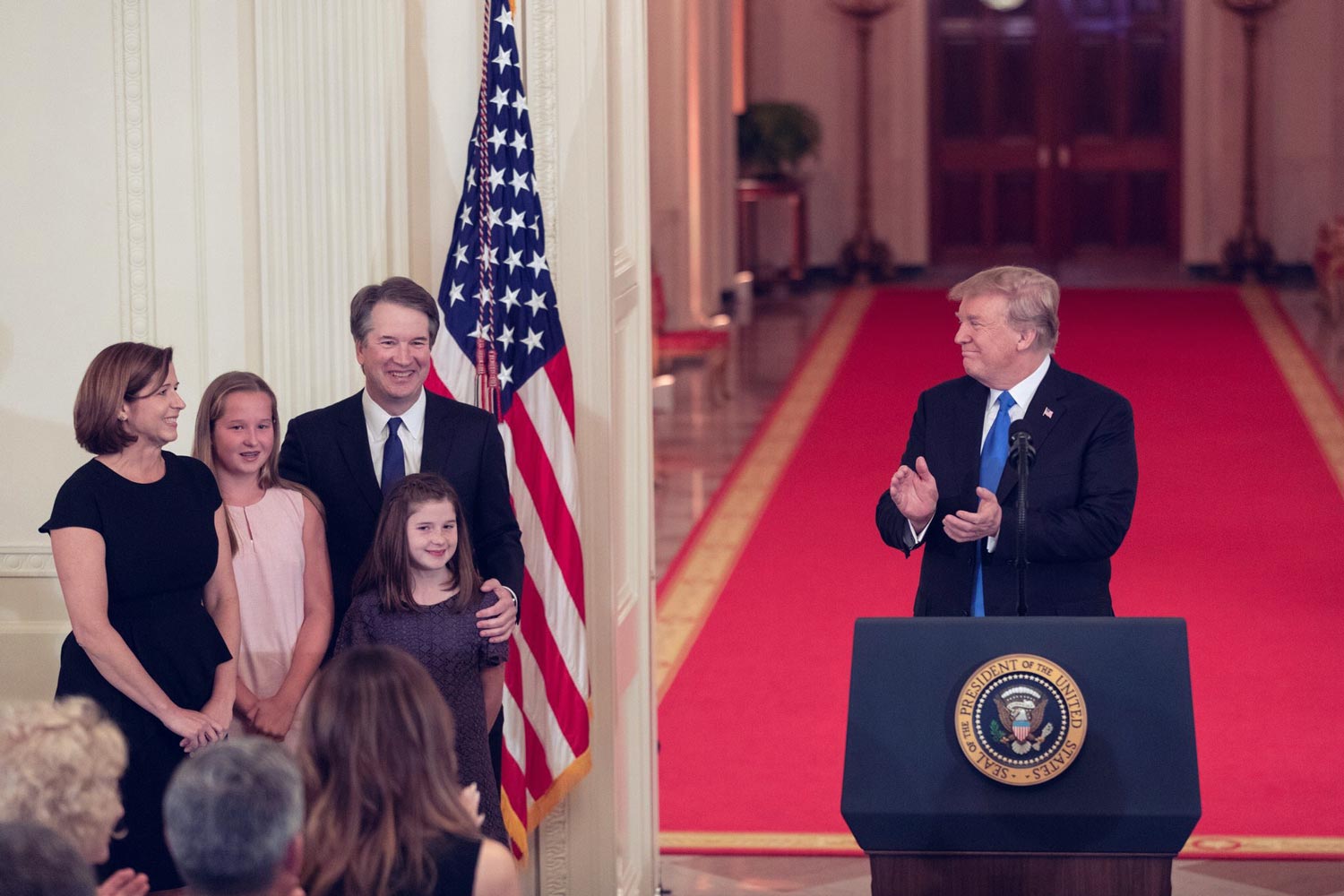University of Virginia Miller Center scholar Barbara Perry expects Judge Brett Kavanaugh to push the U.S. Supreme Court to the right while avoiding some of the incendiary language and judicial opinions of more ultra-conservative judges.
President Donald Trump nominated Kavanaugh Monday night to fill the seat vacated by retiring Justice Anthony Kennedy, who was often the swing vote in polarizing cases. Kavanaugh, who currently serves on the U.S. Court of Appeals for the Washington, D.C. circuit, worked as an aide to President George W. Bush, clerked for Kennedy and participated in the impeachment case against President Bill Clinton. He now faces the scrutiny of the U.S. Senate, where a simple majority is required to confirm his nomination.
Perry, the Gerald L. Baliles Professor and director of presidential studies at the Miller Center, has written or edited six books on the Supreme Court and served as a judicial fellow at the court from 1994 to 1995, a position reserved for top political science and law scholars.

Barbara Perry has written or edited six books on the Supreme Court and served as a judicial fellow there from 1994 to 1995. (Photo by Amber Reichert)
We spoke to her Tuesday about the new nominee, whom she termed “the perfect candidate” for Republicans because he has a conservative track record and sterling résumé, but lacks the combativeness or incendiary judicial opinions that derailed conservative nominees like Reagan-era judge Robert Bork, rejected by the Senate in 1987.
Q. What stands out to you about the president’s nominee?
A. He really is the perfect candidate for Republicans hoping to fill this particular seat, known as the swing seat. Obviously, Democrats will not be happy, because he is certainly a conservative. However, there can be no doubt about his qualifications – he has an impressive résumé. And while he is not as moderate as Justice Kennedy was, he is also not as incendiary as someone like Robert Bork or even former Justice Antonin Scalia, who both used combative, pointed language in their judicial opinions.
Q. Are there any other justices you would compare Kavanaugh to, past or present?
A. I think he will be a lot like current Chief Justice John Roberts. Their personalities are very similar – keen and highly intellectual, but also pleasant and affable. It was clear even in Kavanaugh’s speech Monday night he does not have a pointed or combative personality. I have met his wife, Ashley – she was lovely – and he seems like a kindly, even-keeled person. [Ashley Kavanaugh is a former secretary to President George W. Bush and worked with Perry on the Miller Center’s Presidential Oral History Program’s history of the Bush White House.]
For comparison’s sake, I would contrast Kavanaugh with someone like Justice Scalia, who could be affable and the life of the party, but who was more incendiary in his rhetoric and opinion.
Q. Do you expect him to be confirmed before the midterm elections?
A. I do. Of course, many Democrats are already vocally opposing his nomination and raising the specter of Merrick Garland’s nomination, which failed because Mitch McConnell argued justices should not be confirmed during a presidential election year.
However, in this case, the Democrats simply do not have the votes to block Kavanaugh. Even if all 49 Senate Democrats voted against him, they would still need to sway some Republicans. Moreover, it is fairly unlikely that the Democrats will vote as a bloc, because 10 Senate Democrats are up for re-election in Trump-leaning states and will hesitate to directly oppose the president.
Instead, both parties will use this to rally their base for midterms. I think it will really turn out the Republican vote, because polls showed the Supreme Court was a top concern among Republicans voting in the last presidential election. It might also turn out the Democratic base, and that is a large part of why Democratic leaders will continue to try to block the nomination.
Q. If confirmed, which major issues could Kavanaugh’s appointment have the most impact on?
A. As a swing vote, Justice Kennedy had the most impact on cases dealing with abortion, the free exercise of religion, the death penalty, some terrorism cases, marriage equality and sexual privacy, and affirmative action. In all of those areas, he was more moderate and often voted with the more liberal side of the court.
Ideologically, Kavanaugh is more conservative than Kennedy and will likely not swing to the left on those issues. So, it appears that we will have a conservative majority court going forward on those issues and others.
Additionally, it is important to keep in mind the mere fact of Kavanaugh’s nomination is significant. President Trump has already nominated two justices in under two years and has the possibility of more if older justices like Ruth Bader Ginsberg, who is 85, retire or face health concerns. The three most recent presidents only made two Supreme Court appointments during their eight-year tenures.
Q. Could any other justices step into the swing vote role?
A. Kavanaugh was a clerk for Justice Kennedy and came highly recommended by Kennedy, so there is a slight chance that he could be more of a swing vote than people expect. However, I do not think that is likely. Historically, political scientists have found that justices depart from the ideological expectations of the presidents who appoint them about 20 percent of the time.
In the modern era, justices like Kennedy, Sandra Day O’Connor and Lewis Powell Jr. departed from ideological expectations in key cases. There is a slight possibility that someone on the conservative side of the court would play that role, most likely Chief Justice Roberts. However, the fact remains that justices tend to align with the presidents who appoint them.
Q. The Roe v. Wade case, which legalized abortion in the U.S. in 1973, has been brought up frequently since Kennedy’s retirement. How could Kavanaugh’s appointment affect the court’s stance on abortion?
A. In confirmation hearings for his current appointment, Kavanaugh, who is Catholic, said he would follow precedent and considered Roe v. Wade as established law. The courts do have a longstanding tradition of following precedent, because that keeps our laws stable and prevents them from changing with every new appointment.
We also know that Kavanaugh reached a compromise in a case where a teenage illegal immigrant had come to the U.S. and wanted to have an abortion [Azar v. Garza]. In that case, Kavanaugh stated that government should protect the life of the unborn, but recommended that the teen be transferred from public to private custody. She was passed into private custody and went forward with the abortion. That is a Kennedy-esque ruling – finding some middle ground on a contentious issue – and Kavanaugh was criticized by conservatives for it.
In my opinion, it is less likely that Roe v. Wade will be overturned and more likely that a conservative court will allow states to place various limitations or requirements on abortion clinics that could make it more difficult for women to get an abortion. Some states already have additional laws regulating when and how a woman can receive an abortion; and some have a very small number of abortion providers in the entire state.
Q. When we spoke about the battle for Justice Scalia’s vacant seat in 2016, you mentioned your concern that the court’s involvement in partisan politics could tarnish its reputation among the American people. Has this nomination process confirmed or alleviated that worry in any way?
A. It has heightened it. Times like these – when the swing seat is up for consideration – put the court squarely in the bullseye of partisan politics, and that is always a perilous time for the court.
However, the good news is there is some balance, just as there has been historically. There have been 116 successful appointments of Supreme Court justices, and they typically involve two key criteria: ideological compatibility with the president and professional merit.
The first is to be expected; every president chooses someone of their ideology and that is why elections have such lasting consequences. In my view, however, the second somewhat balances out that ideological bent. Most of the 116 judges appointed have had superb professional pedigrees, meritorious careers and well-trained, brilliant legal minds. That has helped the court maintain what I call it’s “priestly image” and that’s why it always outshines Congress and the president in public approval ratings.
Media Contact
Article Information
July 10, 2018
/content/barbara-perry-kavanaugh-perfect-nominee-republicans

